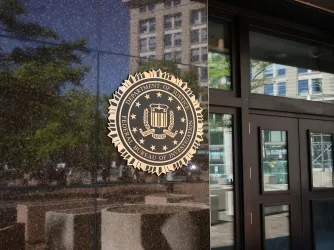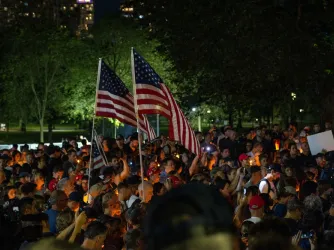Table of Contents
Worcester Polytechnic Institute: Can’t Say They Didn’t Warn You
Prospective students beware: at Worcester Polytechnic Institute (WPI) in Worcester, Mass., you don’t have nearly as many rights as your fellow students just down the road at Worcester State. That’s because, as a private institution, WPI is not bound by the U.S. Constitution, and WPI takes full advantage of that by stripping its students of their First Amendment rights. WPI doesn’t try to hide this fact, either. Unlike many private universities, its website makes no promises that students will have the constitutional rights that they enjoy in society at large. Moreover, it prominently advertises that “[s]tudents enter WPI voluntarily…If they do not like some of the rules, regulations, traditions, and policies of WPI, they do not have to enter,” and that “membership in this particular academic community is freely sought and freely granted by and to its members, and…within this membership group certain specific behaviors that may be accepted by society in general cannot be accepted within an academic community without hindering the explicit goals of that academic community.”
As a private institution, Worcester is acting within its rights: it advertises its repression and censorship right up front. WPI doesn’t promise you free speech, and you won’t get it. That’s why FIRE doesn’t rate WPI a “red light”— when a private university states clearly and consistently that it holds a certain set of values above a commitment to freedom of speech, FIRE does not rate that university. But we still think you should know what to expect when you get there.
Under its Anti-Harassment Policy, WPI bans “display or circulation of written or electronic materials or pictures degrading to either gender or to racial, ethnic, or religious groups” as well as “insults directed at or made in the presence of members of a racial, ethnic, or minority group.” This, of course, is a far cry from what the Supreme Court has declared to be unprotected harassment in the educational context— behavior “so severe, pervasive, and objectively offensive that it effectively bars the victim’s access to an educational opportunity or benefit.” Davis v. Monroe County Bd. of Educ., 526 U.S. 629, 633 (1999).
So students, put away that “Girls Rule, Boys Drool” t-shirt, and look over your shoulder before telling that off-color joke, because the WPI thought police might see you. But hey, can’t say they didn’t warn you.
Recent Articles
Get the latest free speech news and analysis from FIRE.

VICTORY: Court vindicates professor investigated for parodying university’s ‘land acknowledgment’ on syllabus
Ninth Circuit rules UW violated the First Amendment by punishing a professor for putting a satirical land acknowledgment on his syllabus.

Can the government ban controversial public holiday displays?
If the government invites holiday displays, it can’t ban the ones it dislikes. Open the forum, lose the veto — even for Satanic statues.

DOJ plan to target ‘domestic terrorists’ risks chilling speech
DOJ plans to target “domestic terrorists” blur crime and ideology, revive McCarthy-era tactics, and risk chilling protected political speech.

‘Let them sue’: Iowa lawmakers scoffed at First Amendment in wake of Charlie Kirk shooting, records show
Iowa lawmakers urged ISU to punish speech about Charlie Kirk’s killing, shrugging off lawsuits and betting taxpayer money against the First Amendment.